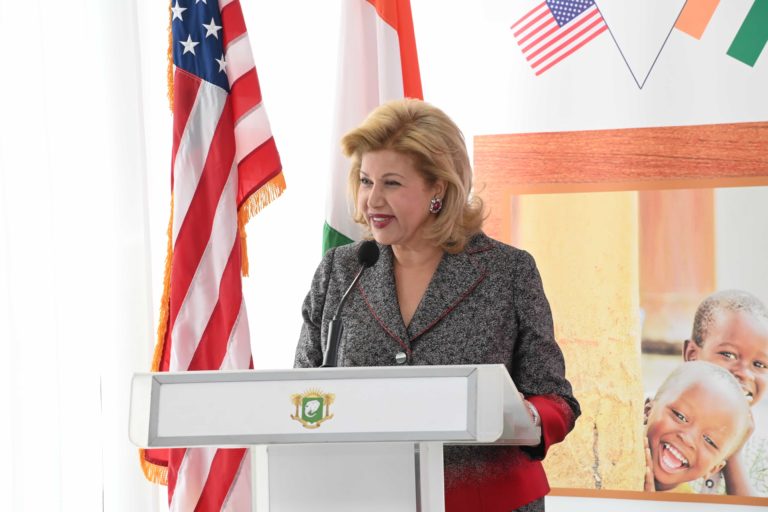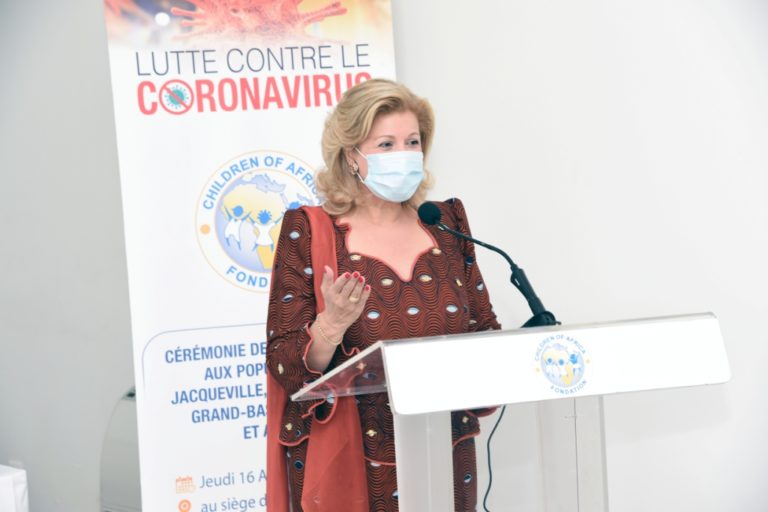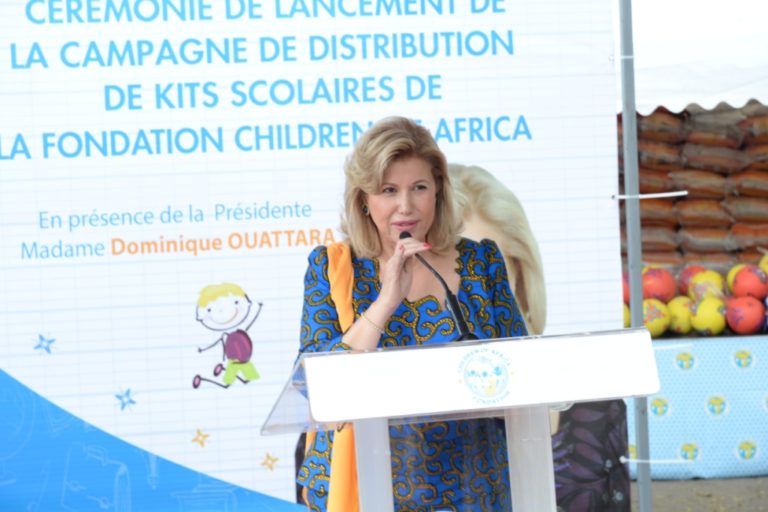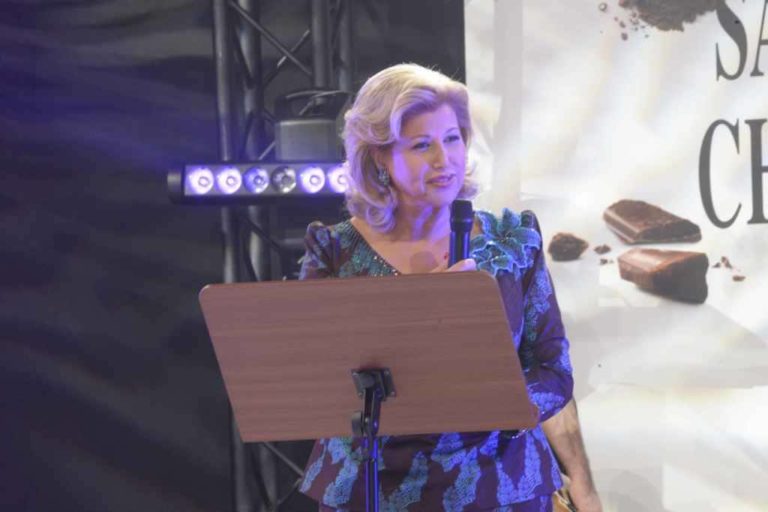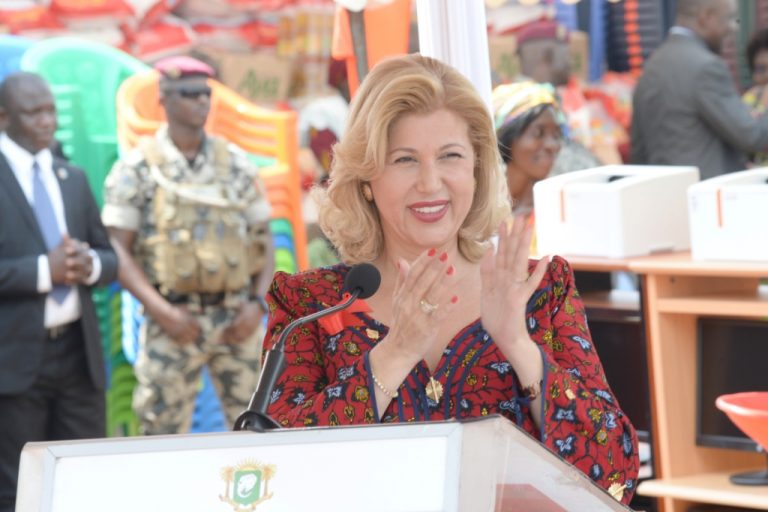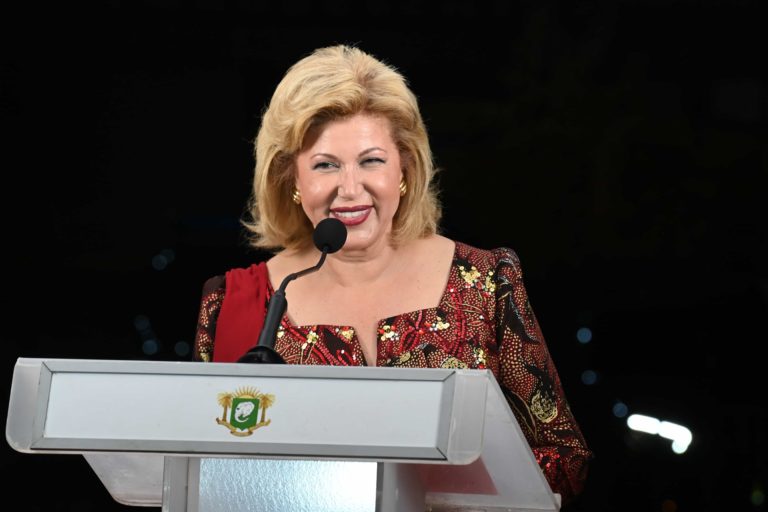
Discours
Speeches
University of the french companies movement (MEDEF)
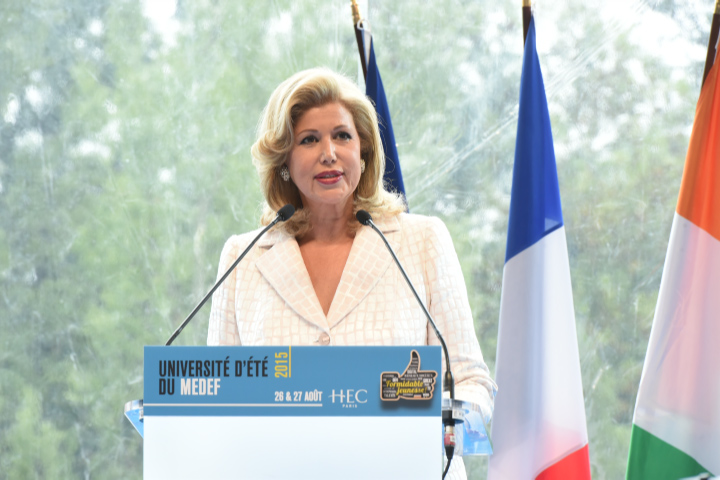
Ladies and Gentlemen,
I would like to, first of all, thank Mr. Pierre Gattaz, President of the MEDEF, and the organizers of the 17th Summer University for inviting me to this great event, giving me the opportunity to speak on a subject that is particularly dear to my heart and which you rightly call "Wonderful Youth".
I would also like to greet you, dear participants, who are gathered today around this theme that brings us together, and congratulate you because I think you are right by dedicating your works of this year to the youth.
I also think that you see far ahead, by taking the time to conduct an analysis involving those who represent the future, on the various challenges humanity will face in the coming decades. That as women and business men that you are, put youth at the heart of your thoughts, seems relevant and particularly encouraging.
Ladies and Gentlemen,
Yes, the youth are wonderful because they are our future, but they may be uncontrollable and desperate, if they are not subject to supervision and attention. They can become the "hidden bombshell" that experts talk so much, and of which the migrants issue has become a sad symbol.
I strongly believe that if we have to meet the challenge of the success of our youth, it is up to us, their elders, to listen to our young people to better understand, and make them enjoy school and train them from a very early age.
It also requires that we also provide them a balanced lifestyle, ensuring them to develop in a healthy family environment with good moral values. All this must be supported by an educational system in line with the needs of the labor market and everyone's abilities. If we need doctors and engineers, then let us train doctors and engineers. But if we need plumbers and electricians, let’s thus train them in these professions, to become excellent and sought-after in their field.
It also require to transcend generations and teach young people to work more often with their elders, and the elders to give rapidly the youth their chance.
All this is so true in Africa, that the challenge is still ahead, as the social reality differs from that of Western countries.
According to a report by the International Labour Organisation in 2013, the African continent alone accounts for half of the 75 million young people who are unemployed worldwide. In a 100 unemployed Africans, 60 are young people. So you can imagine the amount of the difficulties African youth must face.
This reality that shocks us and against which we must act, leading some to believe that African youth constitute a "danger" to its continent. Fortunately, I'm not part of the Afro-pessimists. I am rather of those who are convinced, as Mohamed Mo Ibrahim, one of the largest African business leaders who said "This youth is the first natural wealth of the continent and it will be essential to value them".
Il nous faut aussi répondre aux besoins de financement pour le développement des jeunes en Afrique et à la forte croissance que connait cette tranche de la population. La solution à ces défis passera nécessairement par un partenariat de plus en plus fort entre le secteur public et le secteur privé.
Today, Africa has 200 million young people aged 18-24 years and they will be three times more likely by 2050.
In my country, people under 25 account for nearly 60% of the total population. The vitality and creativity of these young people are one of the major assets for a brighter future for Africa. Our responsibility is to give the today’s youth, all the tools to build the persons they will be tomorrow.
Yes, youth is a tremendous asset for Africa.
To us, here and now, to give them every chance of fulfillment, achievement and success. So we need to invest our time and our energy, for the children and the youth of Africa.
We also need to address the funding needs for youth development in Africa and also respond to the strong growth of that portion of the population. The solution to these challenges necessarily involve a partnership growing stronger between public and private sector.
Ladies and Gentlemen,
You probably know it, I myself have established, directed and developed business for over twenty-five years.
I am therefore pleased to have the opportunity to speak to the officers and leaders that you are, to expose my vision of youth-related issues, as the business leader I was, as President of an international NGO related to childhood and youth and especially as First Lady of Cote d'Ivoire socially dedicated.
Throughout my career, I have been able to measure how the world economy could help advance such fundamental topics as the future of the youth. And as a business leader, I was very early faced the problem of youth employment. It is in fact in this context I could see the challenges our young people faced, and also realize the enormous work we have to undertake to enable our youth to have a chance to succeed in a more competitive society.
So I have integrated in my corporate management, the social responsibility of support to the development of my young colleagues.
Indeed, as part of the companies which I directed, I have focused my efforts on the training of my staff for internal promotion, and for the establishment of additional social support as well as.
Efforts on staff training were mainly intended to complete the often theoretical education that was provided them by sending them regularly in training, to better integrate them into the company and allow them access to responsibility positions.
As for social support efforts, they were meant to support my staff in areas such as health, to provide them with adequate social coverage, which is not always common in Africa and in the USA in the 90s. These actions have resulted into retaining my younger employees in their company, and also reduce the rate of absenteeism.
This experience has allowed me to better understand the problems of the private sector, especially the challenges our young people face every day in their professional lives. Following the election of my husband, President Alassane Ouattara, as President of Côte d'Ivoire, I gave up in 2010 all of my entrepreneurial activities, to devote myself entirely to the service of my fellow citizens mainly through Children of Africa Foundation.
Ladies and Gentlemen,
I have created Children Of Africa Foundation in 1998, during the period I was running my companies, as it was important for me to help the other. Living and straddling three continents, America, Europe and Africa, I quickly realized that the African youth needed to be encouraged and supported. In the title of the Foundation, the key words resound as an endorsement of my commitment, "Children" and "Africa".
African children were therefore and very early, at the origin of my humanitarian work.
Supported by national contributors and international partners, Children of Africa Foundation is involved mainly in Côte d’Ivoire, but also in ten (10) other African countries namely Benin, Burkina Faso, Cameroon, Gabon, Guinea, Madagascar, Mali, Central African Republic, Senegal and Togo.
The main focus areas of the Foundation intervention, namely health, education and social, have been defined based on the specific problems observed in Africa.
In health area, we have vaccinated more than 70,000 children and treated nearly 25,000 others. We also conduct annual ophthalmological caravans for thousands of needy children.
Furthermore, we have launched in 2013, the construction of the Mother and Child Hospital of Bingerville which will be the first care hospital center dedicated to the mother and the child in Côte d’Ivoire. This hospital will contribute to reducing maternal and infant mortality in the region. It will be delivered at the end of this year. In the education sector, we have given access to reading to more than 100,000 children through our 8 Bookmobile, who have crisscrossed the country. We also provided 40,000 children with school kits to help them have their education.
The Foundation also offered several multimedia equipped rooms and libraries across the country. Finally, we built a secondary school in Kong in Northern Côte d'Ivoire, and have refurbished and equipped several schools in the country.
In the social sector, the Foundation fights against poverty by supporting thousands of young women and mothers who have benefited from donations in kind for improving their lives.
In addition, the Foundation builds and subsidizes care centers, which are designed to receive and care for street children, orphans or children at odds with society. We subsidize fifteen centers across Africa, and directly manage a pilot center in Abidjan called "La Case des Enfants” (The Hut of Children), which will soon be replicated in cities nationwide.
Behold, ladies and gentlemen, a summary of the actions of the Foundation since 17 years, brings much comfort and happiness to disadvantaged populations.
This is an opportunity to commend our volunteers who do an amazing job.
Of course, sometimes, we feel that our contribution is only a drop in the ocean, as the needs are immense. But often, the smile of a child we made happy, gives us the courage to move forward and do even more …
Ladies and Gentlemen,
Let me now tell you about my other priority commitments as First Lady of Côte d’Ivoire.
First, the fight against child labor. First world cocoa producer, Côte d'Ivoire is facing during decades the phenomenon of child labor, including in plantations.
Upon accession to the Supreme Magistracy, the President of the Republic knowing my attachment to children, asked me to be in charge of this important issue.
So I personally committed myself to this fight, including through the National Oversight Committee for controlling actions against child labor, which I chair. In this framework, we launched a National Action Plan that allowed us to work in synergy with national and international NGOs. We have among others, strengthened the legal and regulatory framework to combat this scourge, and signed agreements with First Ladies of neighboring countries in the fight against cross-border trafficking.
We also conducted an extensive media campaign to raise awareness and meet chocolate industry to ask them to support the government by building schools and training facilities.
I want to emphasize that our efforts in this struggle bear fruit because attitudes and habits are changing, and we are on track to eradicate child labor. Moreover, the threats of the international community ban that weighed on Ivorian cocoa has been lifted.
Ladies and Gentlemen,
In my struggle for the well-being of children, I have early realized the importance of mothers in their education, that is why another of my key commitments is the fight against women poverty, by the creation of a microcredit fund reserved for them.
Indeed, very often, women only need a small credit for trade or agriculture, but they are not eligible in banks. Therefore, to enable women start an income generating activity, I prompted the creation of the Support Fund for Côte d'Ivoire Women (FAFCI).
The FAFCI is a reduced rate microfinance funds for women and it has a capital of Euros 12 million set up by the State of Côte d'Ivoire. It enables the beneficiaries to achieve their projects and become independent.
To date, 95 000 women, most of whom are young people, have benefited and have been trained for the management of their activities.
Ladies and Gentlemen,
I would now like to talk to you about the initiatives of the Government of Côte d'Ivoire in favor of its youth. One of the main reasons for the failure of the African youth to meet the challenges that lie upon him, is the schooling and training gap that characterizes our country.
In Côte d’Ivoire, for example, according to the latest national data from 2014 and the CIA World Factbook, the literacy rate was 56.9%, against 99% in France.
The President of the Republic, concerned about this situation, decided that from the next school year, school would be mandatory in Côte d’Ivoire for all children from 6 to 16 years.
This important measure, of which the cost is estimated at over Euros one billion, will have the effect of compelling parents to send all their children to school, including girls and positively influence future generations.
As you probably know, the education of girls is a serious problem in Africa, and this measure will be used to solve it.
Before taking this decision, from 2011 to 2015, the State of Côte d'Ivoire and its partners have built and rehabilitated more than 17,000 primary classrooms and 155 schools to make up for school infrastructure deficit.
Over this period, more than 35,000 teachers and supervisory staff have been recruited at all school levels to integrate the national education system. In addition, since September 2012, five (5) Public Universities of Côte d'Ivoire have been fully refurbished.
Furthermore, the Presidency of the Republic annually grants scholarships to the best students of the country to enable them to integrate the universities and colleges abroad.
I would like to salute to that end the Secretary General of the Presidency, State Minister Amadou Gon Coulibaly who is with us today. I ask you to applaud him loudly.
More recently, a Ministry exclusively dedicated to the Promotion of Youth and Youth employment has been created, headed by the Delegate Minister to the President of the Republic Mr. Sidi Touré, who is also with us. Thank you to applaud him loudly too.
Among other things, this ministry has initiated the establishment of a youth employment agency, whose mission is to fund young entrepreneurs, organize the implementation of graduates’ internship, and provide training to unemployed young people. One of its flagship actions: “act for young people” that allows to grant micro-credits to young people, project leaders, and that’s a really successful.
To this end, the Ivorian Government has mobilized a budget of over Euros 73 million. This funding has been associated with the introduction of new tax measures for young entrepreneurs and job seekers.
Ladies and Gentlemen,
I would like now to talk about the promising perspectives of my country.
With a dynamic, efficient youth, and accustomed to new technologies Côte d’Ivoire is a major pole of development and is for you, French business leaders, an unparalleled consumer market and a gateway to the entire West African market which represents more than 335 million people.
Our country also offers quality infrastructure necessary for a presence in Africa, in order to expand your production capacity and the distribution of products "Made in France".
For information, the Ivorian Center for investments promotion is a support platform to start a business in one place, and in less than 24 hours. It also has the task of assisting any company wishing to settle in the country.
In addition, the private sector has a code of attractive investment and a favorable business climate.
Finally, our country has international schools, good health facilities, a regional airline and communication technologies among the best; factors that help facilitate your implementation.
As you can see, the Côte d’Ivoire is a market in strong economic growth, constituting a great potential for your companies.
I therefore seize the opportunity offered to me to invite you to come to our beautiful country, and join our efforts to give the best chance to this "Wonderful youth".
I do not doubt for a moment that they will be able to dare, innovate and exceed our expectations.
Thank you.
